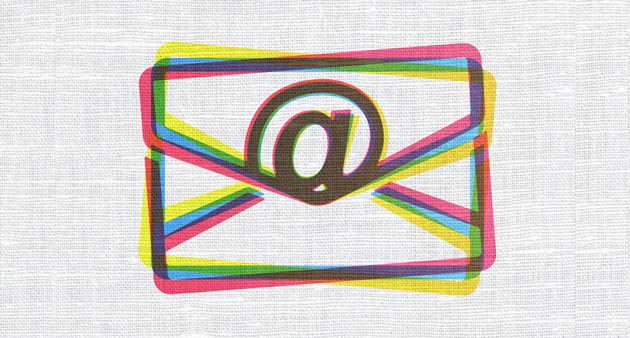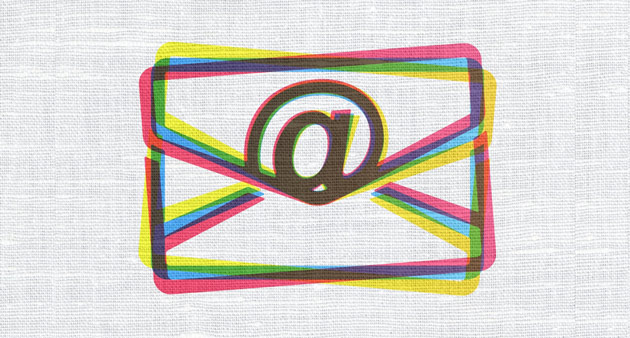Aaron Charli
17 Nov 2014
Why Are Subject Lines Important?
Are you, like countless many others, sitting on an inbox of hundreds, maybe even thousands of unread emails? Or are you wondering why only one hundred of the nine hundred and fifty three newsletters you sent out Tuesday weren't opened?

If you’re struggling to get your emails read they probably share something in common with the unread emails in your own inbox.
Poor Subject Lines
"But surely if the content is great then my subject line won’t even matter?"
Somewhere hidden in the depths of your junk folder there is a quality article or offer relevant to you that you have missed.
You haven’t opened it. Why?
Thanks to a poor subject line
Importance of Subject Lines in Email Marketing
During Obama's 2012 re-election campaign, twenty-four of his thirty person digital team were focused on email. With 4.5 million donors and an average donation of over $53, the campaign managed to raise over half a billion dollars online.
The marketing campaign immediately grabbed people's attention with powerful, personal subject lines captured brilliantly in this graphic featured on NYMag.

So What Works?
General consensus amongst top email marketing services like MailChimp is that subject lines should be kept shorter than 50 characters. - Currently over 40% of emails are read on mobiles devices. Your subject line will not be readable if it exceeds the size of the screen, so keep your subject lines short.
Use Litmus’ subject line checker to see what your email will look like in a range of different inboxes.
People hate missing out. Using words like ‘ending soon’, ‘important’ and ‘final’ in a subject line will make readers want to take advantage of your offer right away. A subject line like 'Ends in 5 hours time' will not capture the immediate necessity for the recipient to open it. Your subscribers will think that they have plenty of time to redeem your offer and will often forget to come back to your email before the deal ends.
Misleading subject lines or ‘click baiting’ will generate high percentage opens in the short run but will only generate negativity towards your emails in the long term.
Research has shown that targeting certain areas and offering those people in particular with location specific deals generates far greater percentages of opens.
Make sure you only send location specific emails to the relevant people. Nobody wants an offer that isn't relevant to them or that they can't redeem.
Numbers in a subject line are visually jarring; they stand out from the page and offer instant information about the content of your email.
However, too many numbers and/or statistics in a subject line quickly become confusing. Numbers are incredibly effective but only in moderation.
Litmus recorded instances of symbol use that boosted opens by 10-15%. Although there is near universal support for symbols nowadays across devices/systems, some email services/devices will not support them. They will appear as boxes in your client’s inbox so bear this in mind when trying to be creative.
Our own Email Marketing training courses emphasise the importance of what goes on before the inbox - particularly SPAM and permission-based marketing. Tackling this key stage will hugely improve your marketing campaigns.
What Should I Avoid?
Here are a selection of common subject line mistakes and why they should be avoided.
Excessive Capitalisation
![]()
Nobody likes to be shouted at.
Incorrectly Named/Test Emails
![]()
Speaks for itself really; if you want your emails to be personal then make sure you’re using the right name.
Over Familiarisation
![]()
Using first names is great and will benefit your subject line. Full names, not so much. Don’t over familiarise yourself with your mailing list, you don’t want to come off as creepy.
Unnecessary use of Punctuation
![]()
Unnecessary use of punctuation, particularly exclamation marks, will do no favours for your subject line; it's more than likely going to be sorted directly into your junk folder by your e-mail’s spam filter.
FWD: or RE:
This not so 'clever' trick is unprofessional and will not likely work more than once.
New terms are continually being added to spam filters. You only need to look as far as your junk folder for examples of these. Or check out this far more comprehensive list of terms to avoid.
What Now?
Experiment.
There are no perfect subject lines, you could use the same subject line two separate weeks and have open rates that are 30% apart.
The only way we ever learn anything is by experimenting. Try sending your weekly newsletter at different times each week, different days even.
Try an AB split. A small portion of your mailing list will receive one subject line and a second portion will receive another. Whichever is the highest performing subject line will be sent to the rest of your mailing list.
Some would even go as far as saying that you should be spending twice as long on your subject line than you do on your content. However bold that may sound let me reinforce that if the recipient never opens it, the quality will not matter.
